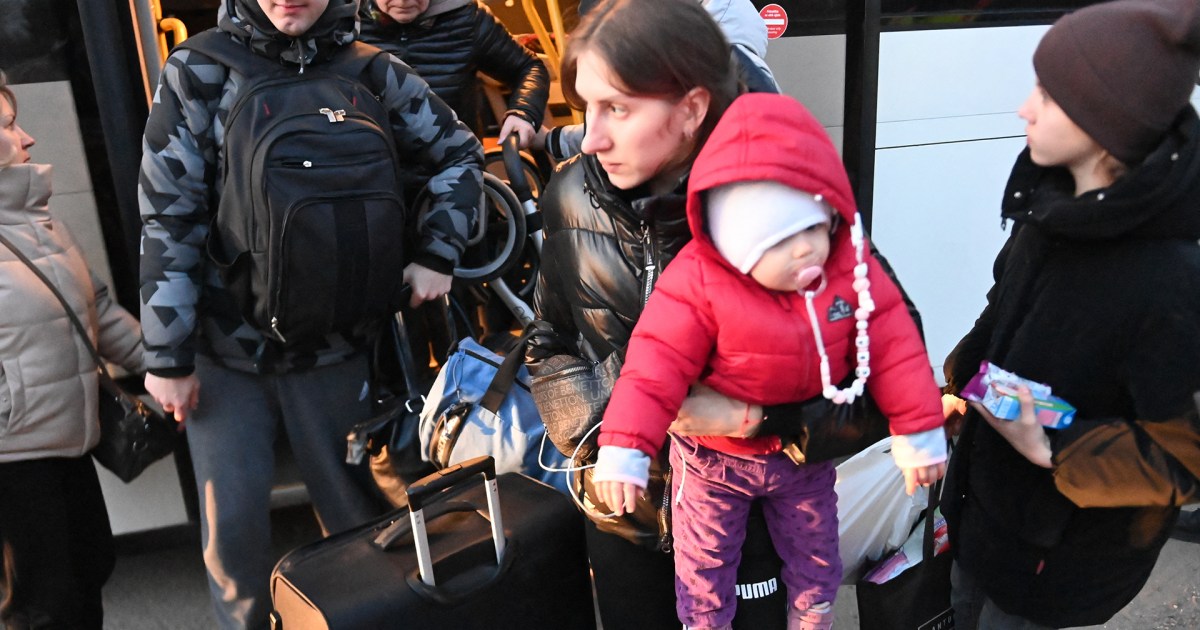The Russian war on Ukraine revealed a new chapter of racism, stereotyping and media orientalism, and showed many coverages of major media outlets such as French MSM, BBC and ITV. (ITV), "CBS", about an inferior view of the peoples of the Middle East and North Africa, in return for promoting the cultural superiority of the European peoples.
A statement by the Arab and Middle East Journalists Association (AMEJA) condemned what it called racist coverage of the war, and rejected “the normalization of the tragedy in parts of the world such as the Middle East, Africa, South Asia and Latin America” by dehumanizing peoples and holding them responsible for the conflict and considering them worthy of war by stigmatizing them as uncivilized. .
The statement affirmed solidarity with civilians who are subjected to military attacks in different parts of the world, while at the same time rejecting comparisons that justify some conflicts and sympathize with others, which contributes to removing the context of conflicts and reduces the suffering of the population suffering from occupation and aggression.
"Civilian casualties and displacement in other countries is just as abhorrent anywhere as it is in Ukraine," he added.
The statement called for reporters to be trained in the cultural and political differences of the regions they are reporting on, "and not to rely on American or European biases. Inaccurate and deceptive comparisons only fuel stereotypes and mislead viewers, and ultimately perpetuate harmful responses to political and humanitarian crises." .
Correspondents and media outlets have made - live - comparisons that Ukrainian refugees fleeing the Russian war are "more civilized" and different from their counterparts who have been exposed to the ordeal of asylum from the countries of the Middle East, and some of those media outlets considered that Ukrainians are culturally and "civilized" closer to Europe compared to Refugees from the Arab Mashreq and North Africa.
Anger at the Western media's way of covering the crisis in Russia and Ukraine...
Have you come across stances or comments that express racism toward color or race?
pic.twitter.com/x9zwryfcsv
— AJ+ Arabic (@ajplusarabi) February 27, 2022
The British Telegraph newspaper says about the Ukraine war: "They look like us, and this is what makes the matter shocking. Ukraine is a European country, its people watch Netflix and have Instagram accounts, vote in elections and have a free press. War no longer happens in isolated poor communities, War can happen to anyone" pic.twitter.com/AzCEaQN0Ha
— Ali Alwoozain (@alwoozain) February 27, 2022
Bulgarian PM: Ukrainian refugees are not the ones we are used to, they are educated Europeans pic.twitter.com/AyEcUNfUyZ
- Al Jazeera Channel (@AJArabic) February 27, 2022
Media Orientalism
Western media plays a major role in reinforcing the stereotype of Orientalism in its latest, hostile version.
In a study of the British media carried out by Al Jazeera English, it was noted that the imbalance in the coverage of Muslim news in the media contributes significantly to the “hostility” and Islamophobia in Western political discourse.
In the United States, the phenomenon seems more hostile, as Orientalist discourses - such as those expressed by the Orientalist Bernard Lewis - include a huge confusion between Islam and terrorism.
The late Palestinian-American thinker Edward Said had opened the door to dismantling the colonial literary text wide, to become, within a very few years, the pioneer of a critical school of thought bearing the name "post-colonialism", which deals with the cultural and social effects left by colonialism in the peoples who were subjected to it. These studies on power relations in societies.
Saeed emphasized that the essence of Orientalism is the inherent distinction between Western superiority and Eastern inferiority, considering that (Orientalism) is not just a European imagination, but rather an entity that has a theoretical and practical existence, and in which great potentials have been invested over generations, which is what made Orientalism an epistemological doctrine about the “Orient”, Through him imperialism controlled an entire field of studies, innovations and research institutions, with or without intent.
Said built his argument on the work of the French philosophers Jacques Derrida and Michel Foucault, and defined Orientalism as not just an academic field, but “an intellectual style based on an ontological and epistemological distinction between the East and, in most cases, the West, establishing a rooted dualism between East and West.”
But Saeed - who died in September 2003 - did not witness all the transformations after the classical era of European Orientalism, especially after the Arabs and Islam were no longer included in the attempt to know and understand, but rather hate, hate and hate, according to Hamid Dabashi, author of the book “After Orientalism: Knowledge and Power.” In a time of terror.
Saeed considers that humanity in general, with its various peoples, shares its quest for freedom and human dignity, and thus denies reductionist and racist ideas that limit that human quest to Western peoples and white races.

